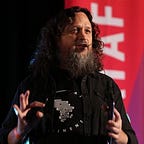Pioneering digital journalist selected to kickstart Tanzania initiative
Journalist and digital strategist Omar Mohammed has joined Code for Africa as its country head in Tanzania.
Mohammed has been appointed as an ICFJ Knight International Journalism Fellow, tasked with establishing a Code for Tanzania chapter. This will include establishing local chapters of the global Hacks/Hackers community as well as a flagship civic technology ‘CitizenLab’, with a core team of software engineers, data analysts and digital journalists who will work with local newsrooms and social justice NGOs.
“Data is going to help Tanzanian journalism rise above the ‘he said, she said’ trope, and is going to help get to the heart of what truly matters to citizens,” says Mohammed. “Not only are we going to help citizens become better informed, but we are also going to give citizens simple digital tools to do something constructive with their new knowledge.”
Mohammed joins Code for Africa from Quartz Africa, where he covered East Africa from Tanzania’s commercial capital, Dar es Salaam.
Mohammed’s team will initially demonstrate the local potential for data journalism and civic technology in Tanzania by replicating successful Code for Africa projects from elsewhere on the continent. This includes localisation of a set of HealthTools that will help Tanzanians check that their doctors are not quacks, and that they’re not being overcharged for medicines. Similar toolsets in Kenya and Nigeria have prompted government agencies there to tighten regulations combating fake doctors, while the medicine price tool in South Africa is widely used by doctors themselves.
“These simple tools have all been built for audiences who only have SMS or low bandwidth Internet, and are designed to give citizens actionable information they can immediately use to improve their lives,” explains Code for Africa founding director, Justin Arenstein. “Our whole philosophy is to help media empower their audiences, using appropriate and cost effective digital technologies.”
Mohammed will also explore the potential for using camera drones and environmental sensors for improving public data to combat everything from waterborne diseases to air pollution, as well as experiment with simple data visualisations to help citizens better understand government budgets and development plans.
“Omar will hit the ground running, because of his deep roots in digital journalism and because he’ll be building on top of a large portfolio of proven technologies. We’ve also made sure that we forged strong local partnerships, not just with the media, but also with leading local civil society organisations such as Twaweza and major global institutions with local operations such as the World Bank,” says Arenstein.
Prior to working at Quartz, Mohammed was a Hubert H. Humphrey Fulbright Fellow at Arizona State University’s Walter Cronkite School of Journalism. He has previously served as a senior producer for the BBC Swahili Service’s weekly radio news magazine show, ‘Haba na Haba’ (Little by Little), created and hosted the @Mgahawa news review show on East Africa Television, and served as an analyst with Tanzanian consulting firm Serengeti Advisers and continental media consultancy AfricaPractice. His writing has appeared in The Arizona Republic, Global Voices, and The East African, amongst others.
Code for Tanzania forms part of the continental Code for Africa federation of civic technology laboratories funded through a $4,7 million grant from the Bill & Melinda Gates Foundation, as well as additional grants from donors such as Omidyar Networks, HiVOS, the Knight Foundation, World Bank, Google, and others. Tools built by the federation have been widely adopted, not just by civil society but also by governments such as electoral authorities in Malawi and Zambia which are using GotToVote to help citizens register for elections.
//ENDS//
Code for Africa (CfAfrica) is the continent’s largest network of civic technology and open data organisations, with partner programmes in Cameroon, Ethiopia, Ghana, Kenya, Nigeria, South Africa, Sierra Leone, Tanzania, and Uganda. CfAfrica builds digital democracies that give citizens timely and unfettered access to actionable information that empowers them to make informed decisions and that strengthens civic engagement for improved public governance and accountability. CfAfrica is custodian of the 30,000 strong continental Hacks/Hackers community, is incubating the continent’s largest investigative journalism initiative, the African Network of Centers for Investigating Reporting, and manages a number of prototype funds, including the $500,000/year Sandbox Fund, the $500,000/year impactAFRICA Fund, and the $1m/year innovateAFRICA Fund.
The International Center for Journalists (ICFJ) is CfAfrica’s fiscal agent and global partner innovation partner. ICFJ’s Knight Fellowships initiative embeds strategists into CfAfrica and its counterparts in Asia and Latin America as part of a drive to empower journalists and engage citizens with new technologies and best practices. ICFJ’s partner networks are transforming the field. ICFJ believes that better journalism leads to better lives. For more information, go to www.icfj.org.
